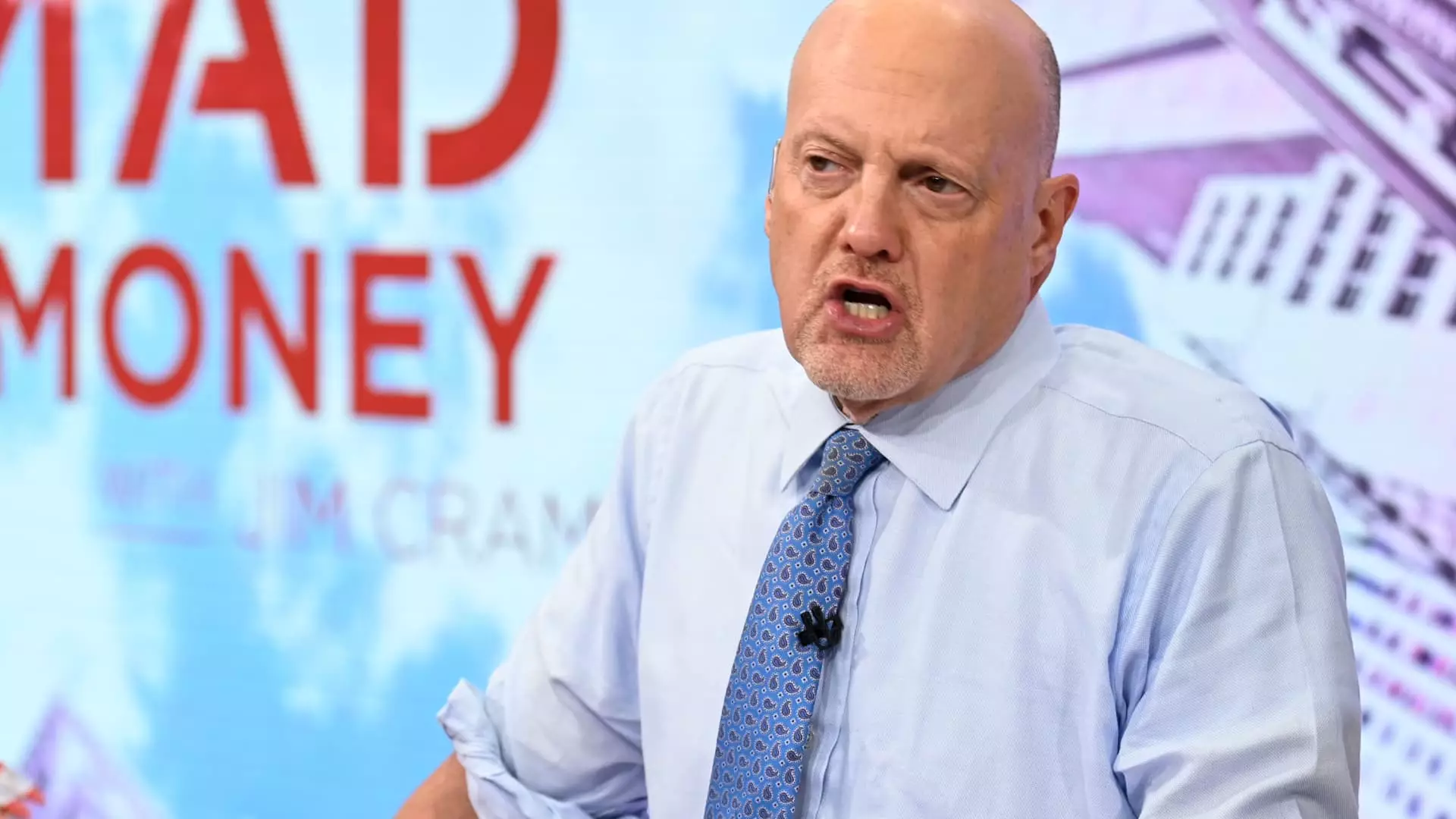Donald Trump’s imposition of tariffs has sparked a crisis that echoes deeply across the global economic landscape. As these tariffs crush stock markets and paint a bleak picture for future earnings, one cannot help but question the economic wizardry behind such decisions. It’s not merely a case of financial consequences; it feels like a strategic blunder that disregards numerous realities. The ramifications extend far beyond simple numbers, marking a potentially disastrous chapter in the saga of American enterprise.
Financial experts like Jim Cramer from CNBC have been vocal, not just about the impending earnings reports of major corporations but about the sheer uncertainty that envelops the market. The essence of these tariffs appears to be a desperate attempt to bolster domestic production at the expense of international trade relationships. However, this leads to decreased consumer confidence and destabilizes markets, as we saw in the stock declines, which are reminiscent of major historical crashes. We must critically examine whether the short-term gain is really worth the long-term pain.
The rippling effects on American Businesses
As we move into the earnings season, with heavyweight companies like Levi Strauss and Walgreens poised to release their results, it’s crucial to scrutinize the impact of these tariffs on their financial health. While companies strive to meet or exceed expectations, they are increasingly becoming collateral damage in a geopolitical game of poker. For instance, Levi Strauss, a company intrinsically linked to global supply chains, stands precariously at the edge of this turmoil. The prediction that tariffs will weaken their market position, particularly affecting trade with nations like Japan and Mexico, reveals a troubling vulnerability.
Similarly, the pharmaceutical retail giant Walgreens has announced a dramatic pivot towards privatization, indicating that uncertainty about future earnings has pushed them into a defensive strategy. When corporate titans start reshaping their future based on external pressures, it shows a worrying precedent. The question lingers—are we sacrificing our manufacturing prowess for hollow victories that only serve to inflate nationalist sentiments?
Transportation Sector: An Industry Under Siege
Transportation hubs like Delta Air Lines are reporting on the health of the travel industry, yet they too find themselves ensnared in the tariff web. Although Delta has reduced its outlook, the reality remains that its earnings report will be tangled with the broader implications of reduced travel and increased operational costs due to tariffs. If air travel, a historically resilient industry, is struggling to find footing amid these headwinds, we must acknowledge that something fundamental is amiss.
The stakes are exceedingly high, and the ramifications echo through industries that rely on global connectivity. Rather than galvanizing the economy, these policies are injecting uncertainty and a sense of foreboding. The travel sector could be the canary in the coal mine, signaling that broader economic trends are deteriorating.
The Inflation Dilemma
With the Bureau of Labor Statistics gearing up to publish crucial consumer price index data, the looming inflation rates pose another hurdle for policymakers. Trump’s tariff policies are expected to drive prices up, creating a vicious cycle that could push the Federal Reserve into a corner. When inflation becomes “sticky,” as Cramer notes, the repercussions are not confined to a single industry—they threaten the financial stability of the country at large.
The painful paradox emerges; an increase in tariffs ostensibly works towards protecting domestic interests, yet the ultimate consequence is higher consumer prices that hurt the very populace it seeks to support. There’s an undeniable hypocrisy at play when policymakers prioritize national pride over economic prudence.
The Bank Sector as a Reflection of Economic Health
As major banks gear up to disclose their quarterly results, the sentiment is undoubtedly mixed. Cramer’s observation that sour economic indicators due to tariffs are already punishing their stock prices underscores a critical truth—financial institutions are incredibly sensitive to the overall climate. Even if the banks post earnings that outstrip expectations, the fallout from tariff-induced apprehension tells a different story. This paradox is symptomatic of a larger malaise, where the markets’ confidence hangs precariously on the next move from an unpredictable President.
Amid all this, there’s a pressing need for an economic strategy that promotes stability rather than one that threatens to shovel more turmoil into the mix. In the context of the liberal center, the balance between protectionism and fostering international cooperation must be analyzed rigorously. Small victories for nationalism should never overshadow long-term strategies aligned with collaboration and robust economic growth.
As we step into a new week on Wall Street, the question remains—will the policies of Trump usher in a bear market, or will there be enough foresight to redirect the tide before it’s too late? The stakes have never been higher.


Leave a Reply